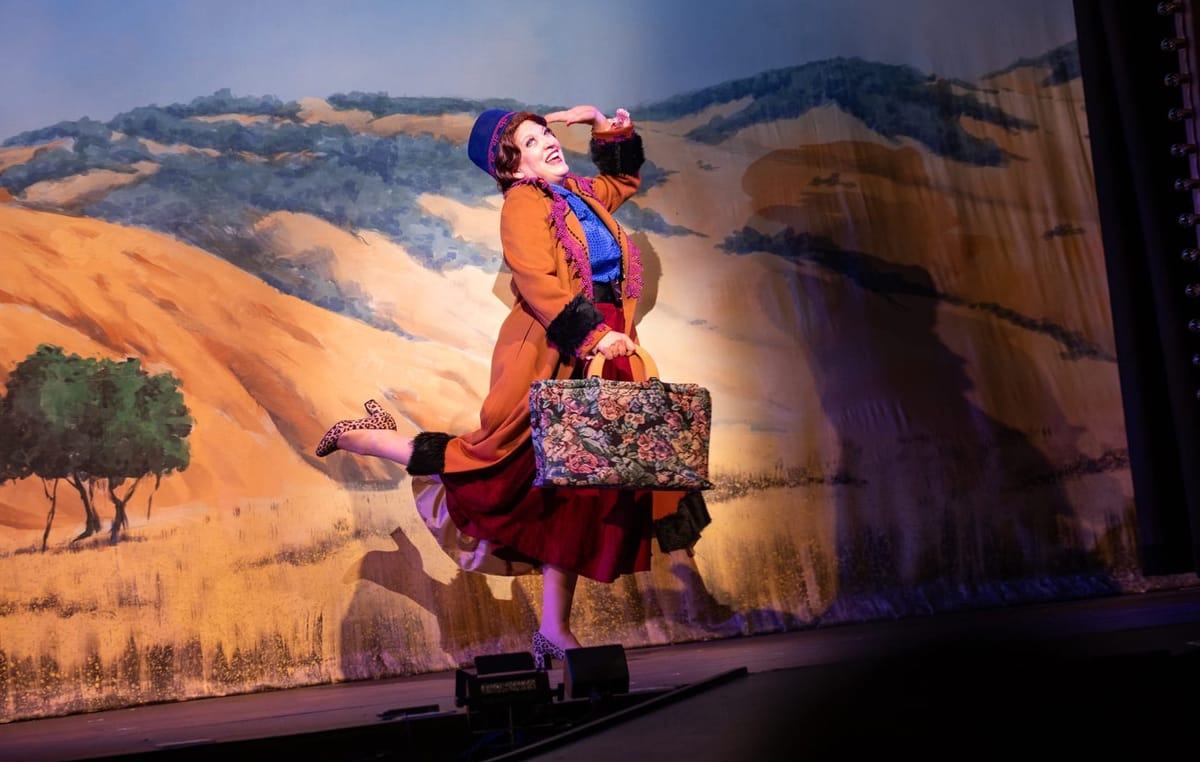A Wichita State incubator program teaches students how musicals are made
Over two semesters, musical theater artists Janine McGuire and Arri Simon have refined their one-act musical "Express" on the WSU campus.
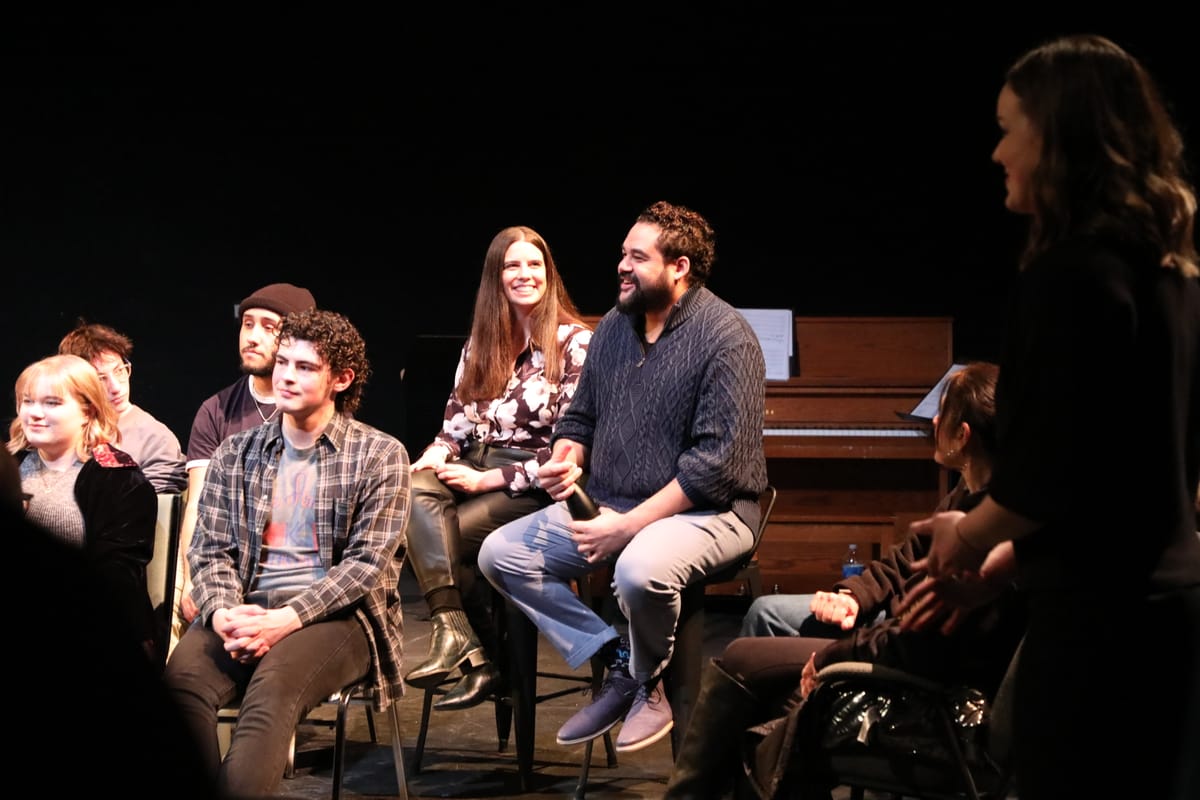
“Nothing stupid, nothing sacred.”
That’s how Janine McGuire and Arri Lawton Simon summarize their approach to making musicals. Over two semesters, the New York-based duo has welcomed Wichita State students into the process of reworking and expanding their musical “Express” as part of a School of Performing Arts incubator program.
Last Saturday, the program presented two performances of the one-act show. When the student actors took the stage at Welsbacher Theatre for the workshop production's matinee, they had spent a total of less than 40 hours in rehearsal.
That gave 21 students — 20 performers and one assistant director — a real-world understanding of how musicals are developed, said Amy Baker Schwiethale, the director of WSU’s musical theater program. “(The School of Performing Arts leadership) felt like there was this missing piece of the puzzle: how is a musical actually created from the ground up?”
The incubator program mimics that process. Between a completed draft and a full run, musical theater writers and composers usually take their work through staged readings — in which actors perform with scripts and sheet music in hand — and/or more complex workshop productions presented after a slightly longer rehearsal period. Those preliminary performances give the creators a ton of information: “the kind of feedback we get from experiencing the work on bodies and mouths,” Simon said.
Baker Schwiethale said she could see the “gears start to turn” as students realized the choices they made in rehearsal could inspire McGuire and Simon to rework a scene or song. As Simon puts it, “Musical theater is one of the most collaborative art forms there is.”
Performing new work is also different from playing a beloved character in a classic musical, multiple performances of which are available to view online. “As a professor, anything that keeps them off YouTube, anything that keeps them from watching someone who's created roles before and then feeling like they just have to mimic what they're seeing is such an important learning opportunity,” Baker Schwiethale said. “There’s nothing they can go and reference.”
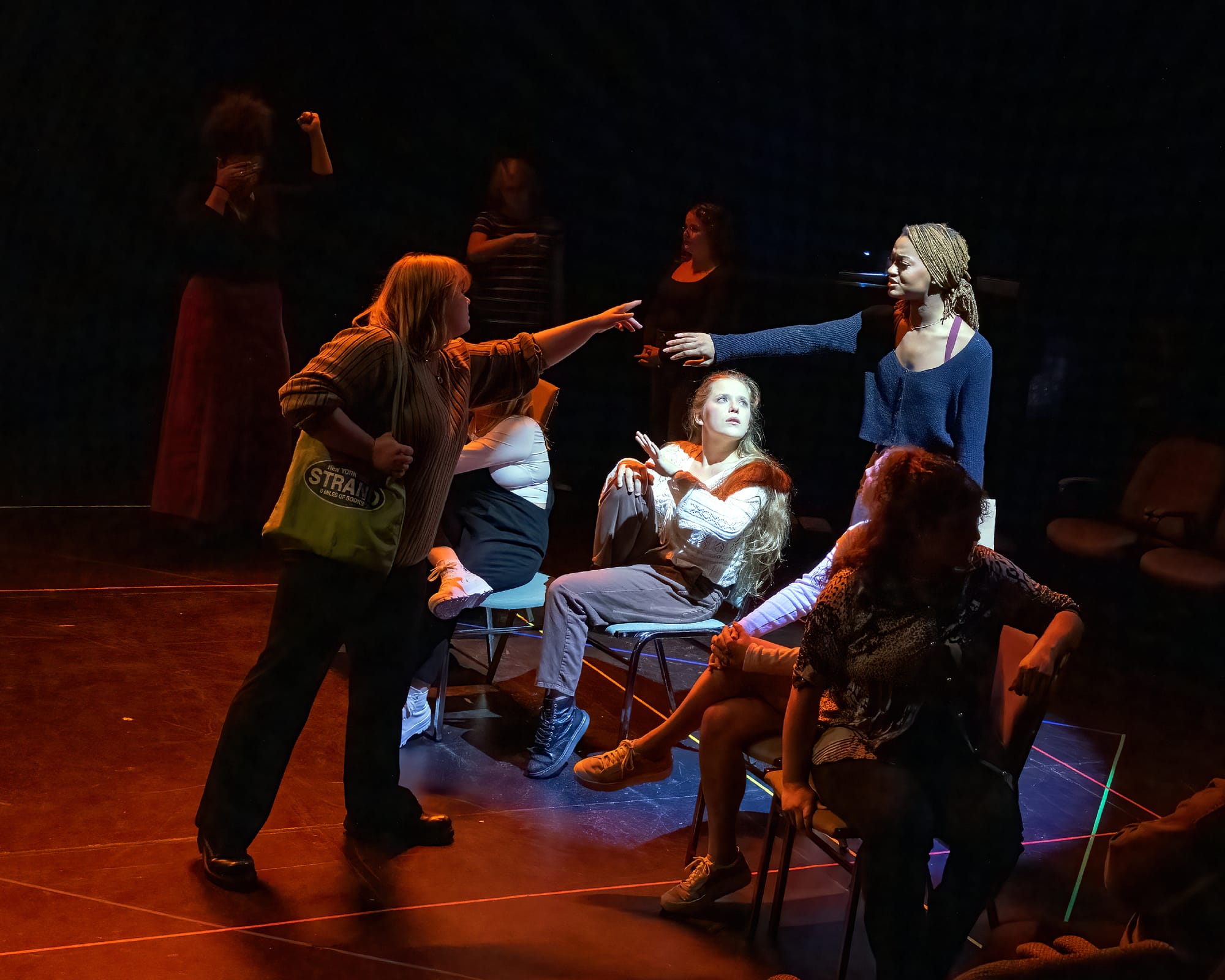
Instead, their only resource was the creators themselves, an experience students described as new and different during a talkback following the Saturday evening performance. “I feel so grateful to be able to work with the people who wrote this,” said Lucas Shroyer, who played Conductor (1964). “There’s never really any chance in theater to be like, what does this line mean? Let me ask the writer.”
Our free email newsletter is like having a friend who always knows what's happening
Get the scoop on Wichita’s arts & culture scene: events, news, artist opportunities, and more. Free, weekly & worth your while.
No spam. Unsubscribe anytime.
The new musical theater incubator program bears the name of the late artist and entrepreneur Jo Zakas, who built Clifton Square in Wichita’s College Hill neighborhood. The Jo Zakas Legacy Foundation began funding the program in 2022 for a staging of “The Fox Sisters,” and the organization has increased its financial commitment every year.
In the program’s second year, McGuire and Simon visited campus to facilitate a staged reading in January. “There was such an incredible response, we wanted to continue exploring it,” Baker Schwiethale said. The $30,000 in funding this year enabled the school to bring Simon and McGuire back to campus for two weeks and hire three additional visiting artists: director/choreographer Kyle Pleasant, lighting designer Tyler Lessin, and music director Dacia Brown.
The gig has been something of a homecoming for Simon, who graduated from East High School and worked as an accompanist at Wichita State between earning his undergraduate degree at Indiana University and his move to New York. He and McGuire, a native of New Jersey, met as participants in the BMI Musical Theatre Workshop and have been collaborators ever since.
This is the second time they’ve worked together in Simon’s hometown: In 2018, Wichita Children’s Theatre and Dance Center commissioned them to create “Kibby the Space Dog,” an adaptation of a children’s book. Concurrent with their work on “Express,” they have been building the producing team for “The Bubble,” a musical adaptation of the 2006 film about an Israeli soldier and a Palestinian man who fall in love. This is an ideal situation for a team that prefers to have “two very different projects going at the same time,” Simon said.
McGuire and Simon originally conceived “Express” as a project for the New York Transit Museum’s Platform series. In September 2015, they staged three 12-minute musicals inside historic New York subway cars located in a decommissioned station that’s part of the museum.
“The amazing thing about the site-specific nature of that (location) is each one of those trains carries a very specific story and vibe of the era in which it was most prominent,” Simon said. “You are immediately transported to a specific era in history by stepping onto one of those cars.”
They chose three cars to work with, matching each one to a moment in the life of one woman across five decades, with music to match each era. During the Platform program, each show ran concurrently four times in a row, and audiences crowded into the cars to watch.
Part of Simon and McGuire’s attraction to the original Platform project was that they were interested in writing something “New York-y.” But the pair say the material — and its themes of diversity and connection —resonates with college students anywhere.
After January’s reading, McGuire and Simon rewrote parts of the musical based on their work with students, whom they tasked with researching the “Express” era they were featured in. Some found “really amazing historical references,” Simon said.
One student discovered a crucial connection between two time periods in the musical: The 1964 World’s Fair, for which the transit system debuted an exclusive car dubbed the Bluebird, included an exhibit that featured drawings of the World Trade Center, which were destroyed in the terrorist attacks on September 11, 2001. The last “era” in the new version of “Express” takes place on the subway in October 2001, when the city was still recovering from the attacks.
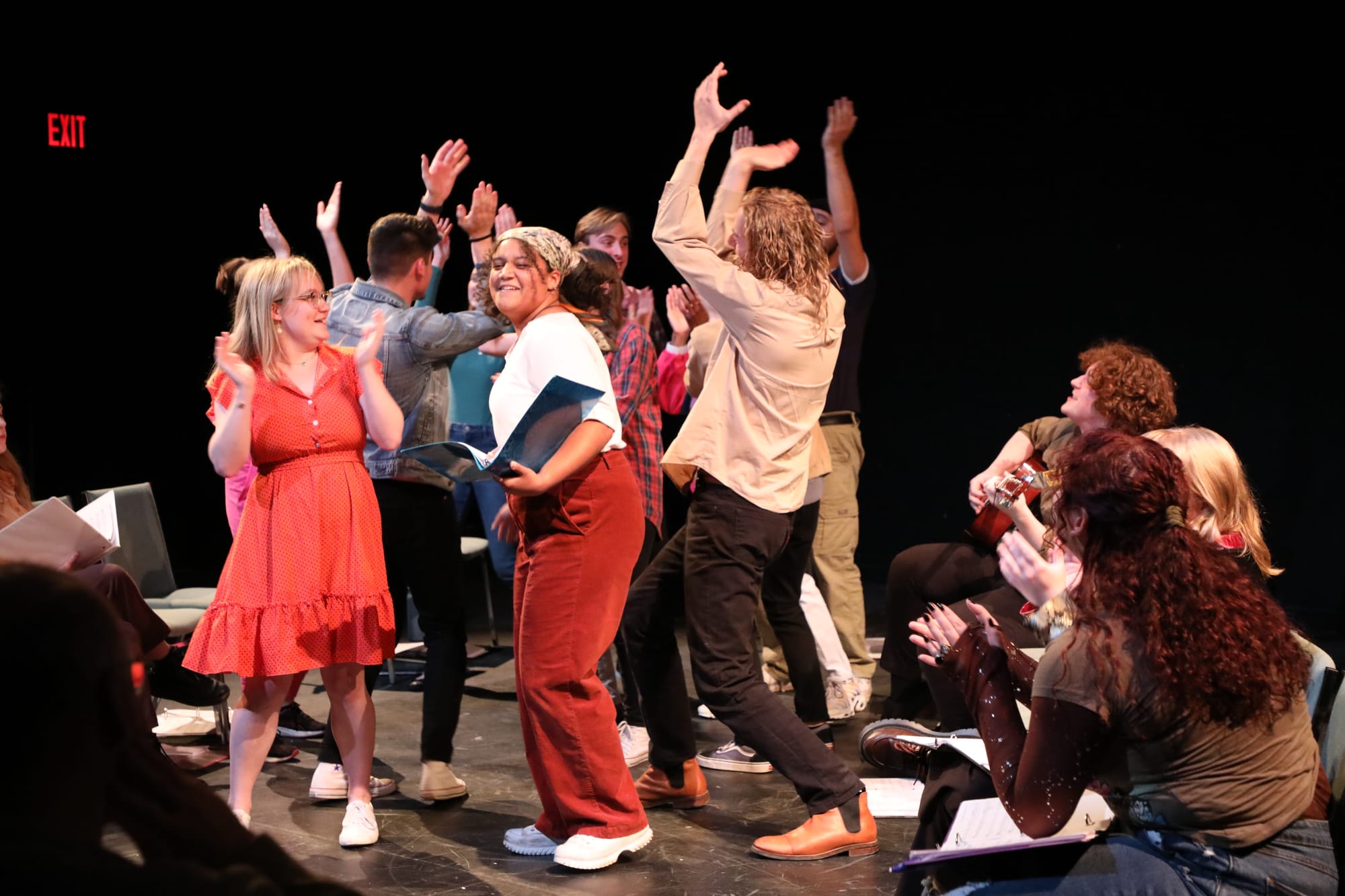
For the staged reading last semester, it was helpful to run the newer material with the students, McGuire said. “It was a chance to sit and do the scenes repeatedly with the actors and just hear their questions, hear what might be missing, what kind of context they wish that they had.”
The back-and-forth led to a new number that premiered last week: “Full Speed Ahead,” which critic Anne Welsbacher describes as a “‘this is me and my quest’ song.” It introduces the audience to Joey, a college student who’s uncertain about her future.
The September workshop was a chance to experiment with additional production elements. Pleasant contributed choreography and blocking that required the cast to rearrange chairs multiple times, suggesting different eras and different subway cars. Each member has their moment, after which they resume their status as ensemble members-slash-fellow commuters. “We were absolutely blown away by what he saw as a possibility for just using chairs, and how Tyler did so much with lighting,” McGuire said during the Saturday evening talkback. “Watching them work has now transformed what we think this show could be.”
The creators already knew that the one-act, 75-minute musical was best suited to smaller, non-proscenium theaters — that is, those where the audience sits around, rather than in front of, the stage, hopefully giving the audience the sense that they’re fellow passengers. In Welsbacher Theatre, with some 80 seats arranged on risers on three sides of the stage, they believe they achieved that effect.
And they took 21 students along for the ride. “The students have really been part of the development process,” McGuire said. “This is how a lot of professional shows work. You do the smaller reading version, then you do a bigger version. Then it grows and grows.”
Emily Christensen is a freelance journalist and news entrepreneur based in Wichita, Kansas. She is a co-founder of the SHOUT.
Support Kansas arts writing
The SHOUT is a Wichita-based independent newsroom focused on artists living and working in Kansas. We're partly supported by the generosity of our readers, and every dollar we receive goes directly into the pocket of a contributing writer, editor, or photographer. Click here to support our work with a tax-deductible donation.
❋ Derby man has the kind of voice that turns heads — and chairs
❋ Socializing while sober: how some Wichitans are cultivating alcohol-free communities
❋ As a small creative business closes, the owner mourns
❋ Painting through it: Autumn Noire on 20 years of making art
❋ How a guy from Wichita resurrected 'Dawn of the Dead'
❋ Bygone Friends University museum housed curious collections
More theater coverage from the SHOUT
 The SHOUTAnne Welsbacher
The SHOUTAnne Welsbacher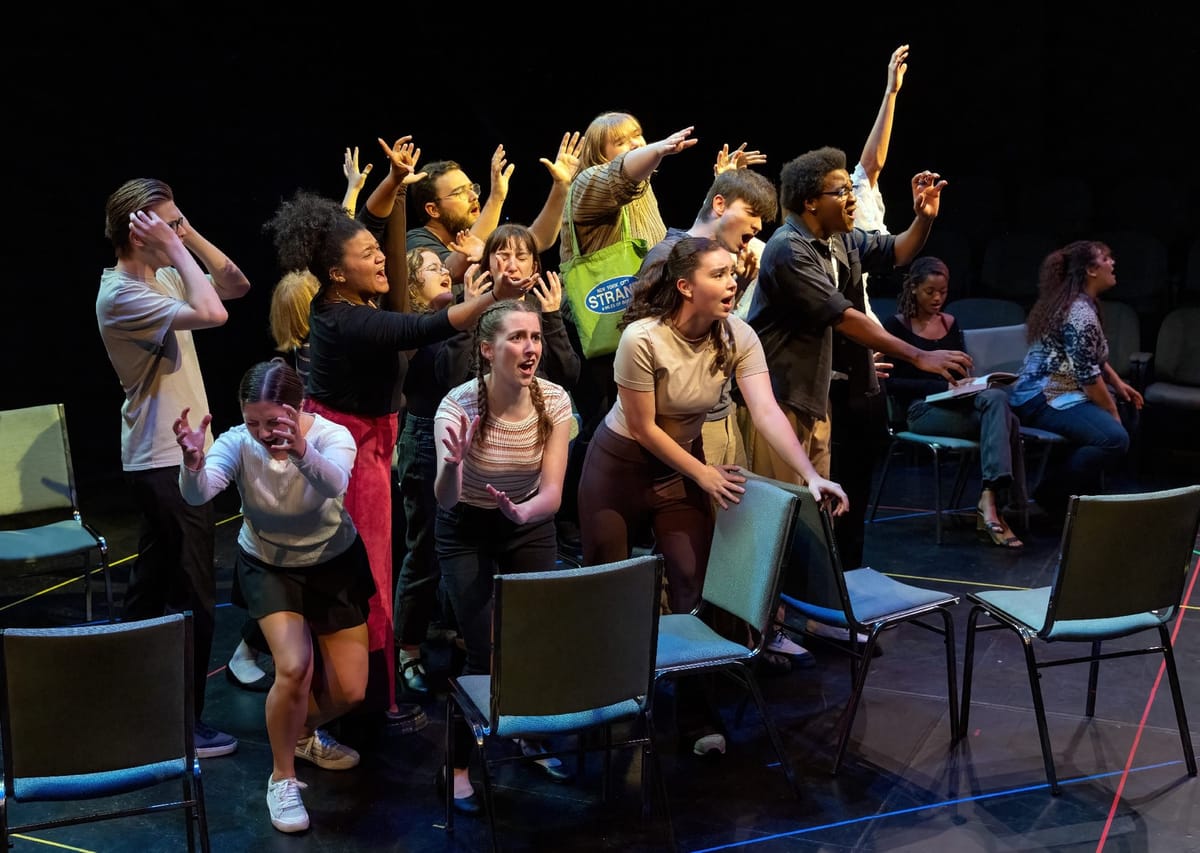
 The SHOUTTeri Mott
The SHOUTTeri Mott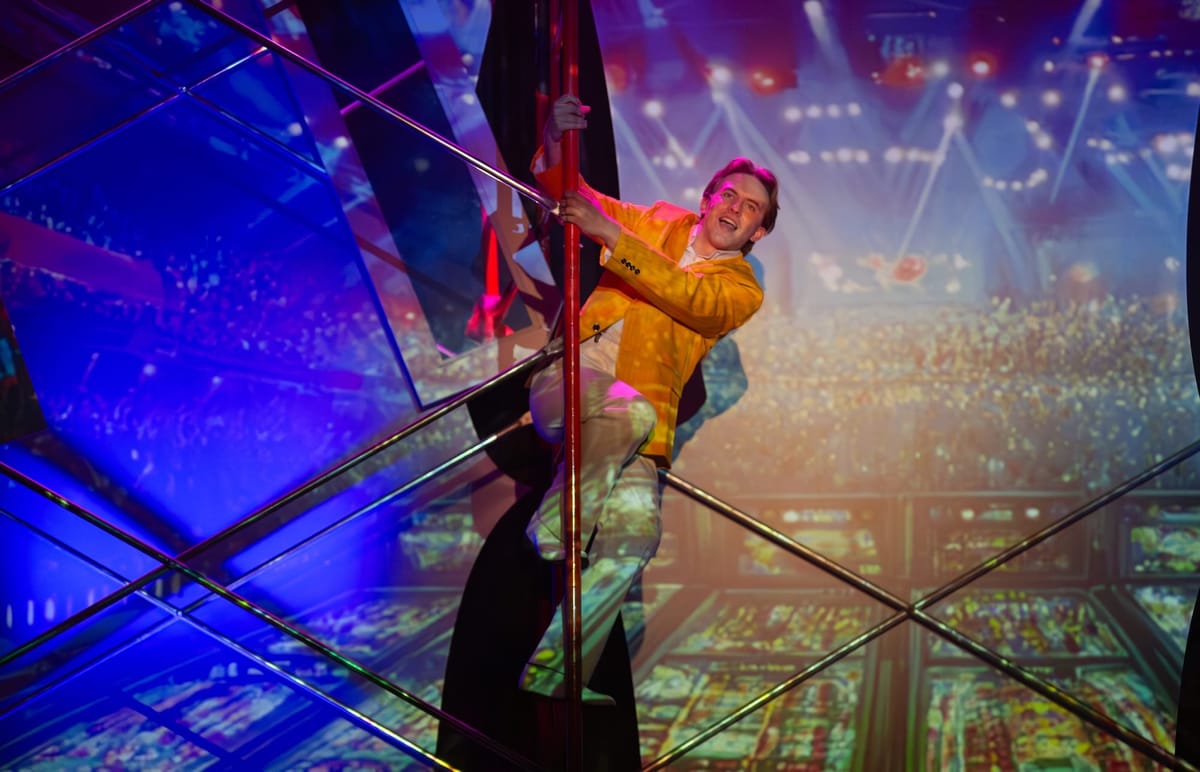
 The SHOUTTeri Mott
The SHOUTTeri Mott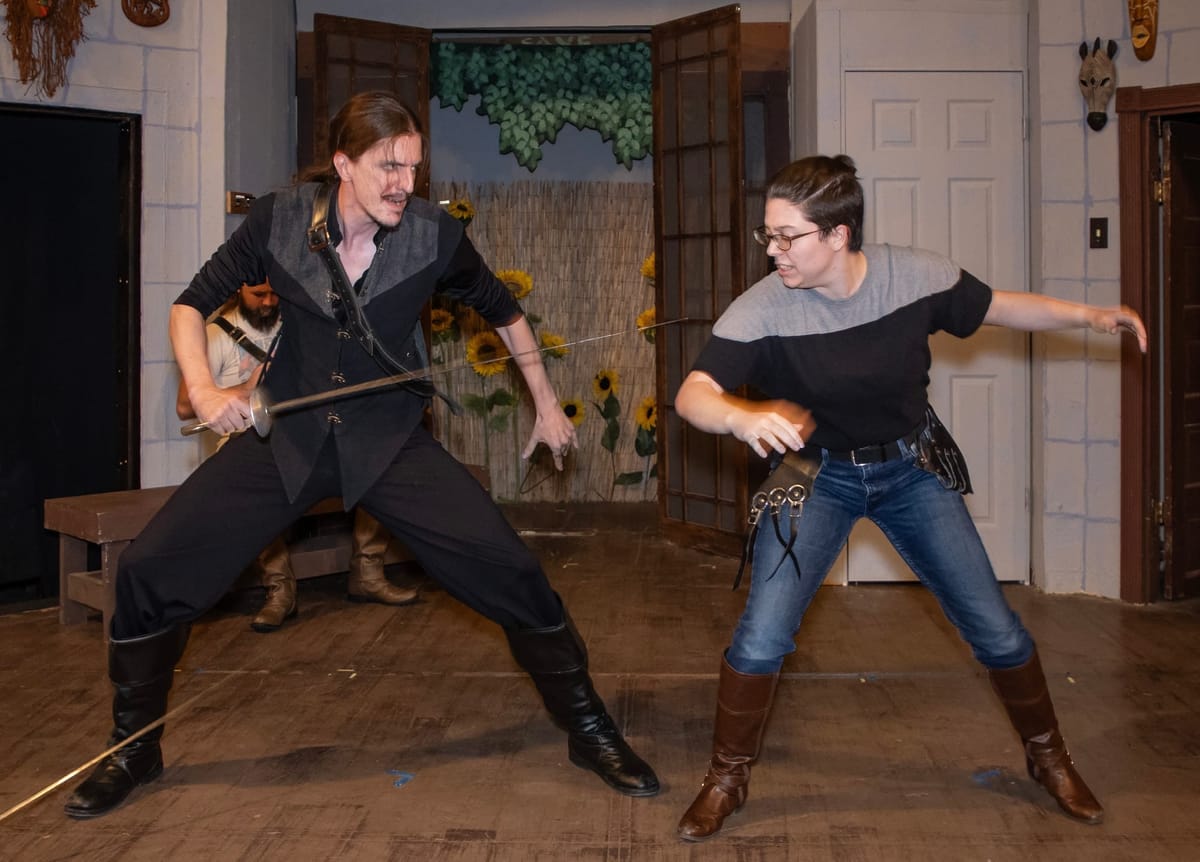
 The SHOUTEmily Christensen
The SHOUTEmily Christensen